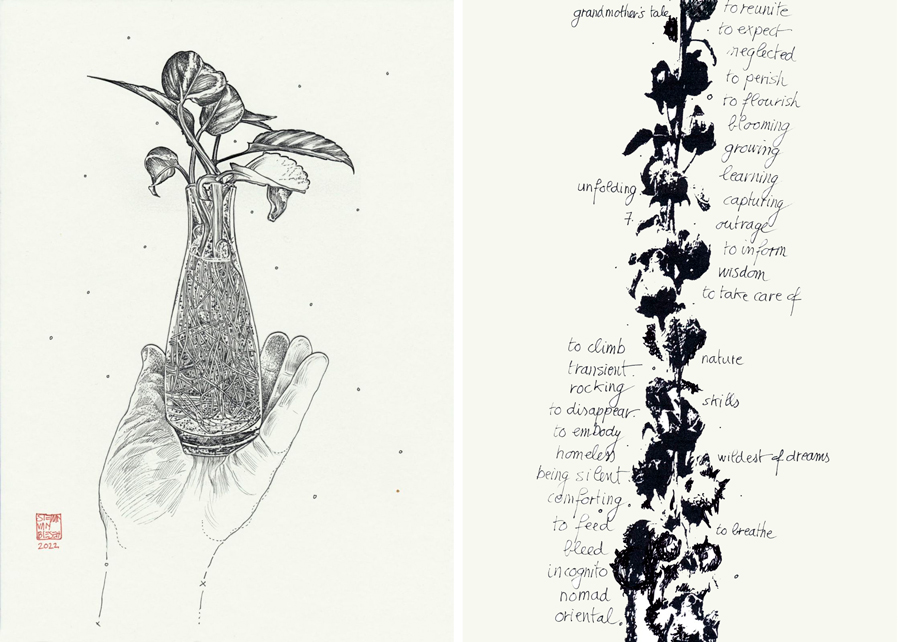Since 1990, Stefaan Van Biesen has documented his walks through drawings, which evolve into installations, texts, videos, and photographs. He views walking as a subjective thought process within urban and natural landscapes. Beyond being an art form, drawing is a powerful tool for learning, enhancing perception, memory, and understanding. Van Biesen’s practice explores urban and human spaces as philosophical and sensory experiences, with drawings serving as reflections on place, memory, and vegetation—ranging from quick sketches to detailed compositions.
Collaborating with writer Geert Vermeire for over 20 years, Van Biesen and Vermeire merge walking, writing and drawing, emphasizing collective creation and redefining artistic boundaries. Their lecture/performance invites participants to a walk and to contribute to a collaborative drawing/writing piece, which will evolve on location and afterwards remotely in dialogue with the artists, becoming part of an ongoing exhibition and creative exchange.

Walking Arts & Local Communities (WALC) is an artistic cooperation project, co-funded by the European Union, Creative Europe, starting in January 2024 for four years. With seven partners from five countries, WALC establishes an International Center for Artistic Research and Practice of Walking Arts, in Prespa, Greece, at the border with Albania and North Macedonia, backed up by an online counterpart in the format of a digital platform for walking arts.
WALC builds on the previous work of hundreds of artists and researchers already practicing Walking Arts as a collaborative medium, and having met at the significant previous walking arts events and encounters in Greece, Portugal, Spain, France, Belgium, and during online activities at walk · listen · create.

We acknowledge the support of the EU Creative Europe Cooperation grant program in the framework of the European project WALC (Walking Arts and Local Community).
Funded by the European Union. Views and opinions expressed are however those of the author(s) only and do not necessarily reflect those of the European Union or the European Education and Culture Executive Agency (EACEA). Neither the European Union nor EACEA can be held responsible for them.




